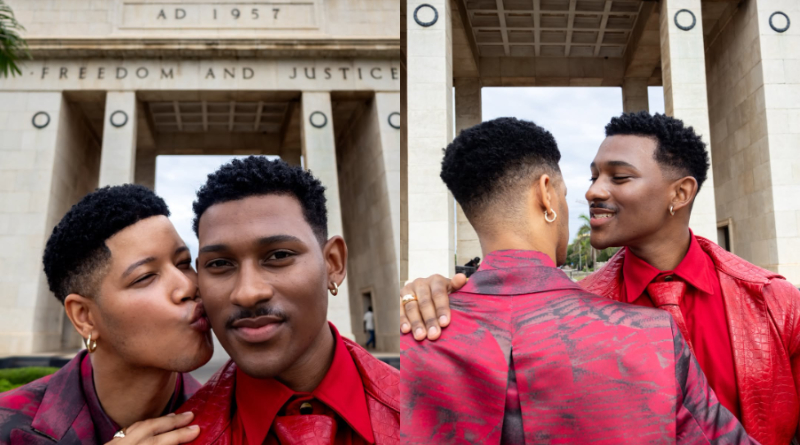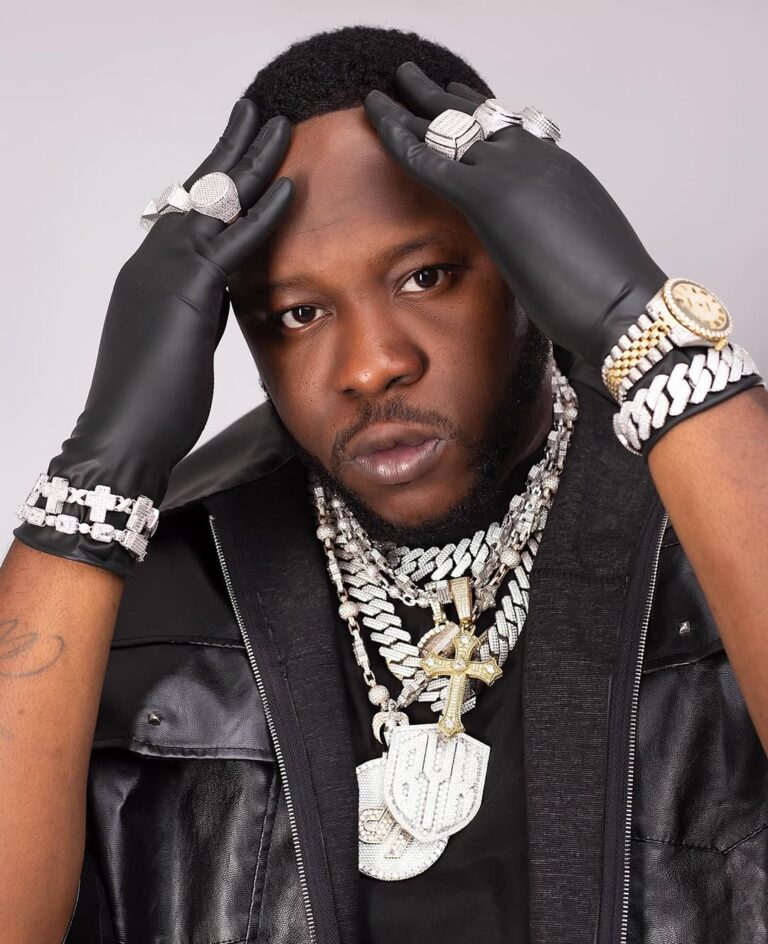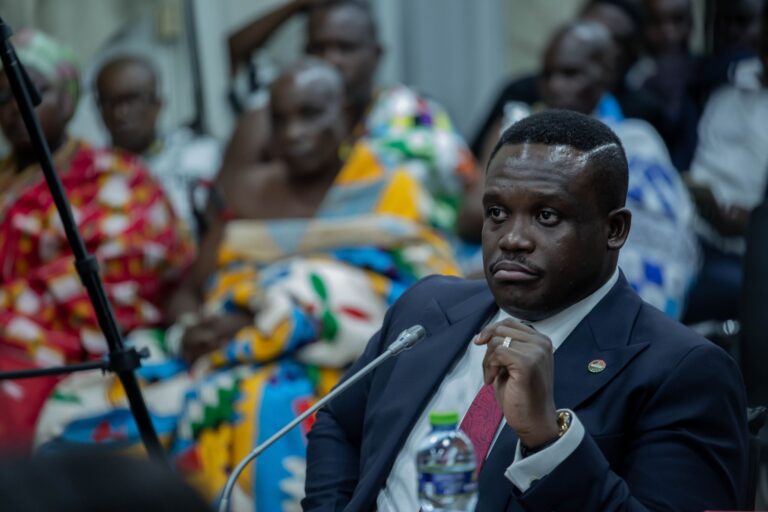A series of images featuring a same-sex couple posing affectionately at Ghana’s Independence Arch and other iconic landmarks have triggered a national outcry, sparking heated discussions on social media, civil rights, and cultural respect.
The photos, part of the #ShowGhanaLove campaign, were shared by South African couple Lue and Rue, who describe the project as a peaceful form of protest against Ghana’s controversial anti-LGBTQ+ bill, currently under parliamentary review. The campaign aims to raise awareness of the lived realities of queer Africans and to challenge the criminalisation of same-sex relationships.
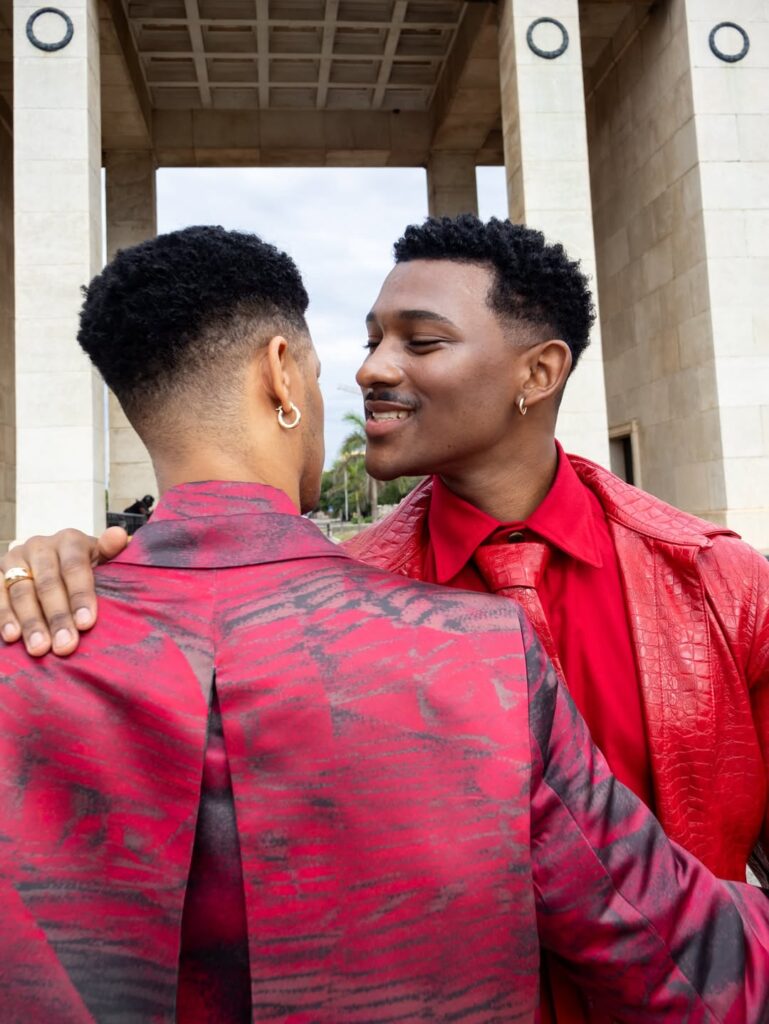
In the widely circulated images, the couple is seen embracing and holding hands at major Ghanaian sites, including the Black Star Square and the Kwame Nkrumah Mausoleum. While the campaign has received praise in some quarters for its boldness and call for inclusivity, the public backlash in Ghana has been swift and widespread.
Critics have described the use of the Independence Arch, a powerful symbol of Ghana’s sovereignty and historical pride, as provocative and disrespectful. Many social media users argue that the monument should not be politicised or used to promote what they view as “foreign cultural agendas.”
The debate intensified when Kofi Okyere Darko (KOD), Director of Diaspora Affairs at the Office of the President, briefly shared one of the couple’s photos on his Facebook page, captioned:
“Who are they? Do your thing but not beneath our independence monument.”
The post was quickly deleted, but not before it had gone viral and further inflamed passions across the political and cultural spectrum.
Ghana, a deeply religious and socially conservative country, has been under international scrutiny over its proposed anti-LGBTQ+ legislation, which seeks to criminalize same-sex relationships, advocacy, and support for LGBTQ+ rights. While the bill is supported by a significant portion of the population, international rights groups and some local activists have condemned it as regressive and harmful.
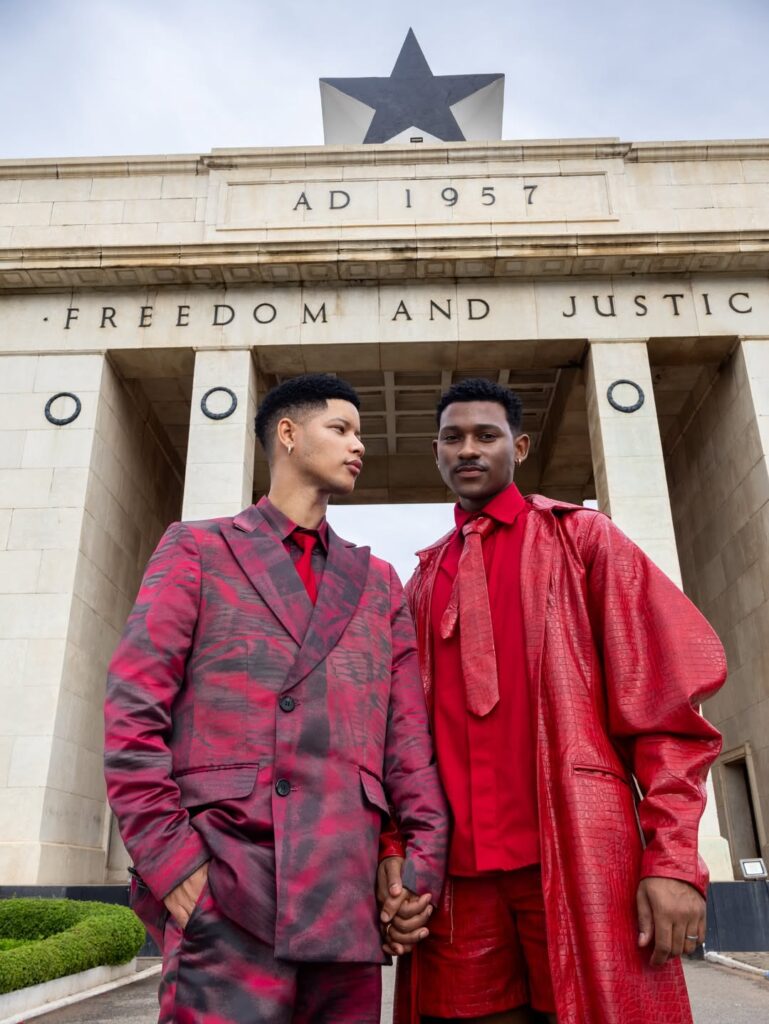
Supporters of Lue and Rue argue that the photo shoot was a courageous act of civil disobedience meant to humanise LGBTQ+ individuals and challenge widespread discrimination.
“This was not about desecrating a national symbol—it was about visibility, about love, and about demanding dignity,” one LGBTQ+ advocate stated.
However, opponents say the protest crossed a line. “This isn’t just any location—this is the heart of our independence, our heritage. You don’t protest by insulting a nation’s pride,” a critic posted on X (formerly Twitter).
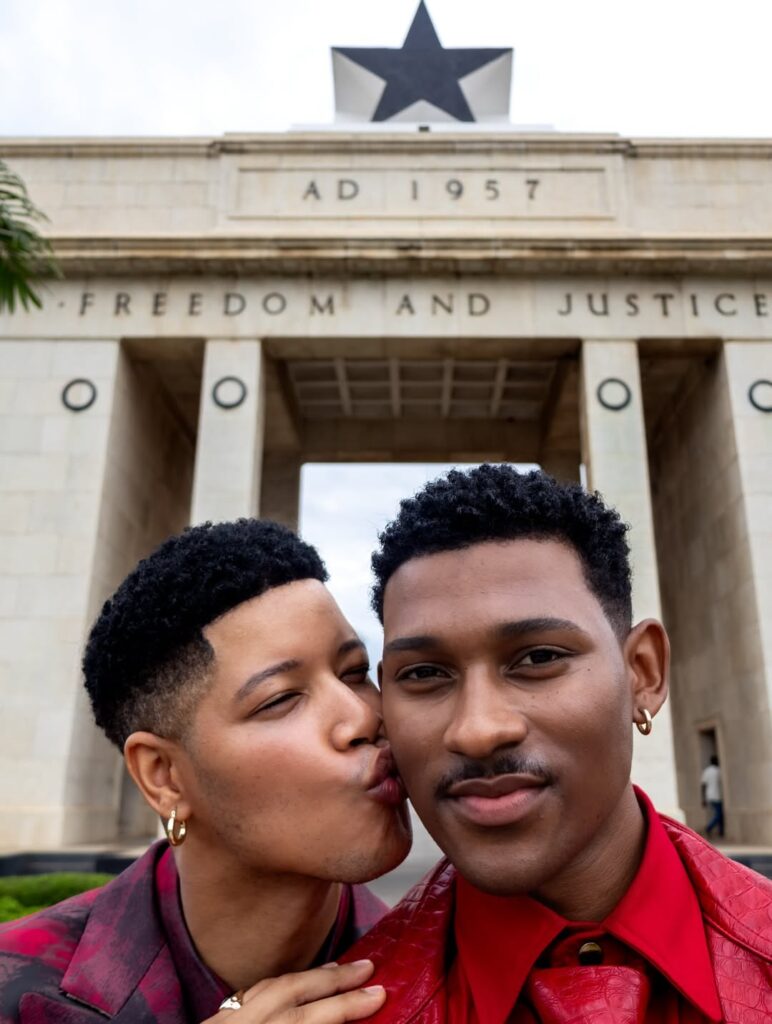
As the conversation continues to divide public opinion, it underscores the broader tensions between human rights, cultural identity, and national symbolism—tensions that Ghana will have to navigate as the global and local spotlight intensifies.

